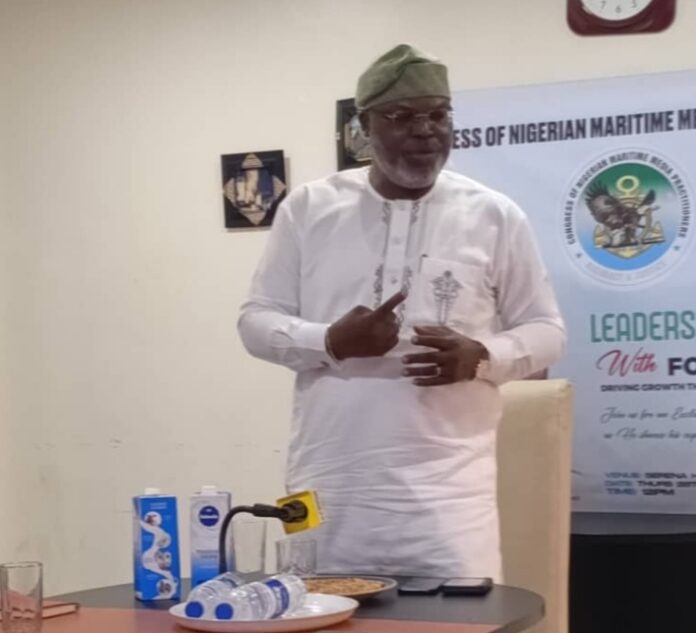By Omenihu Alfred fibmn
The managing Director and Chief Executive Officer of Primero TSL, a mega brand in Lagos BRT franchise, Mr Fola Tinubu revealed to Journalists on Thursday, 28th of August in Lagos at a roundtable discussion organized by the Congress of Nigerian Maritime Media Practitioners (CONMMEP) that his company is working on a partnership bid with the Federal Government to convert anout 200 BRT buses to Compressed Natural Gas (CNG) in other to reduce transportation costs in Lagos and promote a more sustainable public transport system.
Primero Transport services limited is the biggest franchise hub in BRT management in Lagos yet they provide only the best quality service ensuring safety and comfort of all commuters. As compared to the cost of regular transportation around the metropolis, Primero rates are definitely the most affordable in Lagos. The company operate a fleet of over 700 buses, consisting of our initial 434 high capacity buses and about 270 additional buses received from the Lagos State Government. All these are available to serve Lagosians, 7 days a week.
Mr Tinubu, noted that the Lagos BRT bus system, launched in 2008, has undergone significant upgrades, including the introduction of new buses and an e-ticketing system. Under Tinubu’s leadership, Primero Transport Services has become a key player in the city’s transportation landscape as they remain the only company to Introduce wifi in their buses to the joy and comfort of their commuters.
Having traveled and worked in lots of countries for instance America and United Kingdom for over a decade, Mr Fola Tinubu emphasized the need for affordable public transport across metropolis in Nigeria hence advocates the need for the Federal Government to assist public transport operators who run at loss considering the high cost of diesel and spare parts.
It is equally worthy of note that the BRT was Introduce to curb the problems of public transportation in Lagos State which include severe traffic congestion due to poor infrastructure and an imbalance between population growth and transport development, inadequate and poorly regulated public transport systems, a fragmented management structure lacking coordination between agencies, insufficient support for water and non-motorized transport, and declining quality of public vehicles. These issues lead to wasted travel time, safety concerns, unhealthy commuting conditions, and significant environmental pollution.
Tinubu’s commitment to sustaining a modern public transport system in Lagos was evident in efforts towards purchasing the 434 buses with borrowed money from the bank and his rescillience in managing the module against all odds.
The event concluded with the presentation of a certificate of appreciation by CONMMEP executives, recognizing Tinubu’s contributions to the development and improvement of the city’s public transportation.

